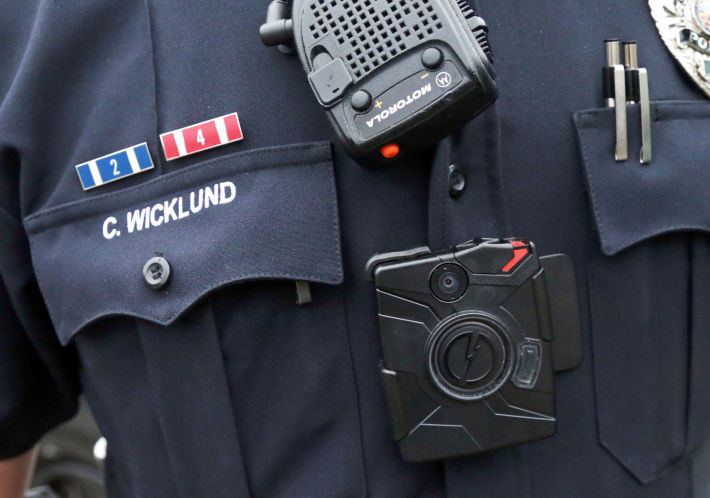
A broad coalition of 34 civil rights and privacy groups, including the NAACP and the American Civil Liberties Union, has unveiled a list of recommendations regarding the use of policy body cameras in the U.S. The guidelines come after a number of incidents in which police body cameras failed to capture what happened before a fatal shooting.
The recommendations primarily encourage law enforcement to avoid using body cameras as a tool for surveillance. They ask police to develop policy with input from the public, to avoid using facial recognition and other biometric technology in examining the footage, to follow specific regulations on how long data is retained, make the footage available to the press and to prevent officers from viewing the footage before filing incident reports.
The Electronic Frontier Foundation, the Center for Democracy and Technology, the National Urban League and dozens of others also signed. The full list of recommendations and signatories is available here.
Last year President Obama called for a $75 million grant that would enable state and local police agencies to purchase 50,000 body cameras in the wake of a number of fatal police shootings. The Department of Justice announced in March it would dedicate another $20 million for body cameras, with the ultimate goal of increasing transparency.
The Lawmakers in at least 15 states and Washington, D.C., are considering legislation that could limit public access to body camera footage, with police warning that sensitive law enforcement information will be captured in the videos.
?While video evidence collected by police officers ?may? enhance transparency and accountability, body-worn cameras don?t watch the police; they watch the community being policed, people like me,? Malkia Cyril, executive director of the Center for Media Justice, told the Atlantic.
?Without civil rights principles that protect the communities the camera faces, any contact between civilians and cops that is recorded by law enforcement ? including basic traffic stops or domestic violence calls ? supercharges the potential for cameras to be used as a tool of high-tech racial profiling, rather than one of transparency and accountability.?
Source: ibtimes.com
